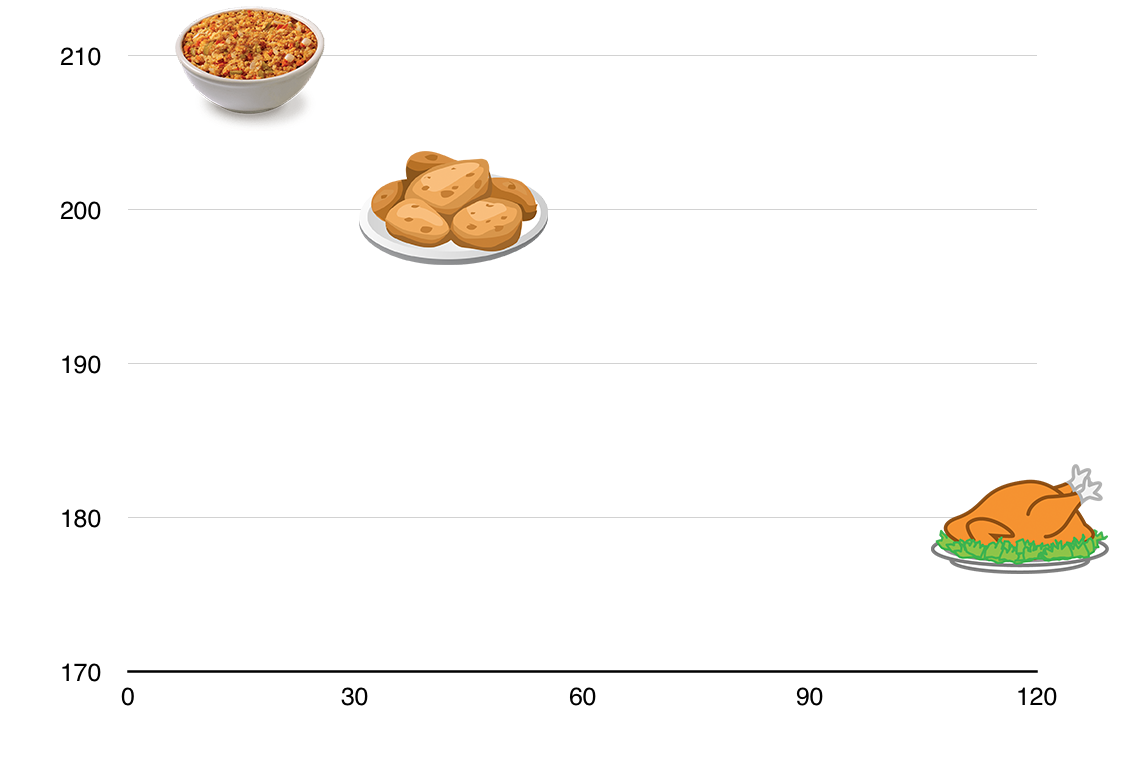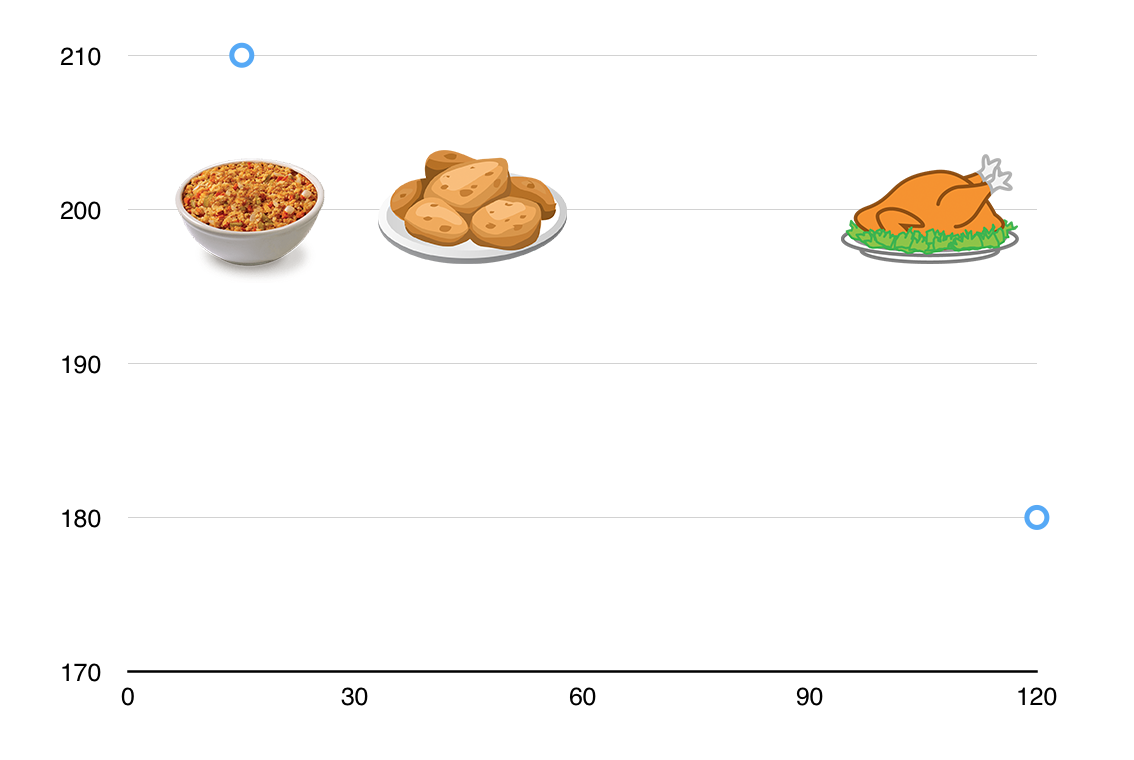Calculating cooking times the easy way
We've all been there when cooking - you have one thing that should be cooked at 200℃ for 30 minutes, another that asks for 220℃ for 35 minutes, and something else that only wants 180℃ for 26 minutes. However, you only have the one oven, so there's going to have to be compromises!
After one too many times guessing appropriate adjustments in my head, I decided "this sounds like something a computer can be doing for me quickly". So, enter Convert::CookingTimes. Given a set of item names, temperatures and durations, it works out the average of the temperatures requested, then adjusts the cooking times to suit (so things being cooked at a higher temperature than normal will get their cooking times reduced and vice-versa). It will then present a list of instructions telling you what temperature to pre-heat the oven to, and what should be put in and when, for everything to end up done at the same time.
So, let's say we're doing a nice tasty English Christmas dinner. We have:
A bunch of potatoes that need roasting for 45 minutes at 200℃
A turkey that's meant to be cooked for two hours at 180℃
And the stuffing that needs to go in for quartre of an hour at 210℃
On a chart this looks something like this:

However, since we need to cook them all at the same temperature we need to adjust the cooking times to compensate. Let's use our Perl module:
my ($temperature, $steps) = Convert::CookingTimes->adjust_times(
{ name => 'Roast spuds', temp => 200, time => 45, },
{ name => 'Turkey', temp => 180, time => 120, },
{ name => 'Stuffing', temp => 210, time => 15, },
);
print Dumper {
temperature => $temperature,
steps => $steps,
};The steps are returned from adjust_times as a reference to an array of hashrefs. These are the same items as passed in, reordered to be in the order you need to put them in the oven. Each of them is a hashref with the keys name, adjusted_time (how long to cook that thing for in total) and, for convenience, time_until_next (the amount of time to wait before the next item in the list is added to the oven in order for everything to be done at the same time). When we run our little script we get this handy output:
$VAR1 = {
'steps' => [
{
'name' => 'Turkey',
'adjusted_time' => 108,
'time_until_next' => 63
},
{
'time_until_next' => 29,
'adjusted_time' => 45,
'name' => 'Roast spuds'
},
{
'name' => 'Stuffing',
'adjusted_time' => 16
}
],
'temperature' => 200
};Plotting these on a chart shows us how the time and temperature for the potatoes and stuffings have been adjusted from the original values (marked with the blue circles):

To make our lives even easier, the output of adjust_times can be passed to summarise_instructions to produce a set of human-readable summarised instructions like so:
say for Convert::CookingTimes->summarise_instructions(
Convert::CookingTimes->adjust_times(
{ name => 'Roast spuds', temp => 200, time => 45, },
{ name => 'Turkey', temp => 180, time => 120, },
{ name => 'Stuffing', temp => 210, time => 15, },
)
);Which produces the highly readable output:
Warm oven up to 200 degrees.
Cooking the whole meal will take 108 minutes.
Add Turkey and cook for 63 minutes
Add Roast spuds and cook for 29 minutes
Add Stuffing and cook for 16 minutesOf course, it's an algorithm, not a cook, so you'll want to use a bit of common sense especially if the range of temperatures was particularly wide - maybe use a meat thermometer to check for a safe internal temperature if you're unsure!
For ultimate laziness, I have a little web interface on my home server which presents various stats and CRUD interfaces etc - including one to store the cooking times and temperatures for things I cook commonly, along with a page I can go and tick the things I'm planning to cook, hit submit, and the stored times and temperatures are passed to Convert::CookingTimes to produce a list of steps to follow easily. Now, if I can just automate the actual cooking away too... hmm, I wonder if that food delivery website Just Eat has an API...